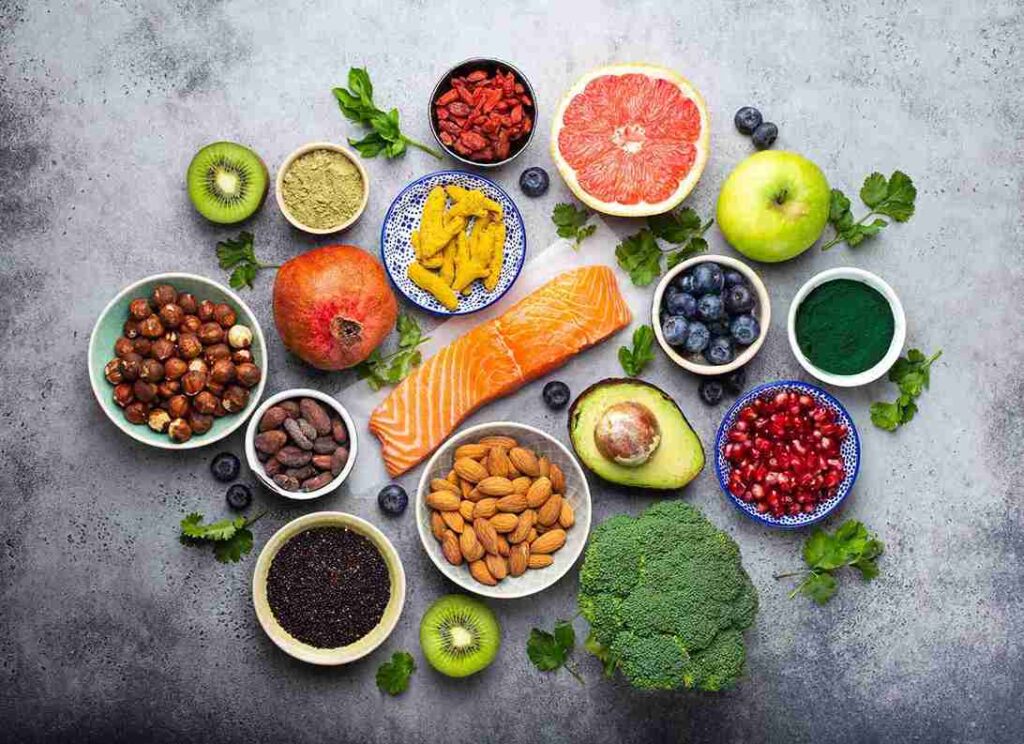
Why Healthy Food Is More Than Just Calories and Macros
The reductionist approach to nutrition—tracking calories and macronutrients—has dominated popular discourse for decades, now more than potentially ever. While these quantitative measurements provide valuable data points, they fundamentally miss the profound biochemical complexity through which food influences cellular function. Understanding these deeper mechanisms reveals why nutritionally equivalent diets on paper can produce dramatically different physiological outcomes.
Food as Information
Beyond merely providing energy, each food molecule serves as an informational signal within the body’s complex communication network:
- Bioactive compounds: Foods contain thousands of phytochemicals, many with hormone-like effects that may influence gene expression, cell signaling, and enzymatic activity. For example, sulforaphane in cruciferous vegetables may activate Nrf2 pathways that upregulate detoxification enzymes and antioxidant production, ultimately enhancing the body’s defense against oxidative stress.
- Possible MicroRNA transmission: Research has identified plant microRNAs that survive digestion and enter human circulation, potentially influencing gene expression in recipient cells—an entirely unexplored dimension of how food affects physiology.
- Structural elements: Food-derived molecules may become incorporated into cell membranes, mitochondria, and other structures, affecting functional capacity. The ratio of omega-3 to omega-6 fatty acids in cell membranes directly influences inflammatory signaling, membrane fluidity, and receptor function (Calder, 2010).
The Microbiome Interface
When you eat, the food affects both your own cells and the huge number of tiny creatures in your gut.
- Postbiotic generation: Beneficial bacteria transform dietary components into metabolically active compounds like short-chain fatty acids, which regulate energy homeostasis, immune function, and neurotransmitter synthesis.
- Immunomodulation: Certain food compounds influence the ratio of pro- and anti-inflammatory bacteria, affecting systemic inflammation levels that underlie numerous chronic diseases.
- Enterocyte nourishment: Specific nutrients preferentially feed intestinal cells rather than absorbed, maintaining the critical gut barrier and preventing inappropriate immune activation.
Your Gut Garden
Food doesn’t just feed you—it feeds the trillions of tiny microbes living in your gut:
- Beneficial bacterial byproducts: Your gut bugs transform food into helpful compounds that boost your energy, support your immune system, and even affect your mood and brain function.
- Balancing good and bad bacteria: Certain foods encourage friendly bacteria while discouraging harmful ones. This balance affects inflammation throughout your body, which can influence many chronic health problems.
- Gut wall protection: Some nutrients specifically nourish the cells that make up your intestinal lining, helping maintain a strong barrier that keeps harmful substances from leaking into your bloodstream.
Everyone’s Body Responds Differently
Our bodies handle food in their own way because we all have different genes.
- Genetic variations: Your genes affect how your body processes nutrients. For example, some people need different forms of specific vitamins because their bodies don’t convert them efficiently.
- Different detox abilities: Some people naturally break down and eliminate certain food compounds easily, while others might build up higher levels of the same substances.
- Timing matters: When you eat can be almost as important as what you eat. Your body processes the same meal differently depending on whether you eat it in the morning, afternoon, or night.
Food Form Matters
How food is prepared and processed changes how it affects your body:
- Teamwork nutrients: Whole foods contain helper nutrients that work together. For instance, you need to eat some fat with certain vitamins for your body to absorb them properly.
- Whole vs. processed forms: A whole apple affects your body differently than apple juice, even though it contains the same sugars. When you eat whole foods, the fiber makes digestion take longer, and that’s good for keeping your blood sugar steady.
- Traditional preparation methods: Techniques like cooking, fermenting, or sprouting can make nutrients more available to your body and reduce substances that might block nutrient absorption.
Beyond Counting
The big takeaway is that food quality can’t be reduced to simple numbers. Counting calories and macros might help with weight goals but doesn’t ensure you’re truly nourishing your body.
Proper healthy eatingconsiders food quality, variety, preparation methods, timing, and your individual needs. This explains why traditional diets from around the world—though very different from each other—typically lead to better health outcomes than modern processed diets with the same calorie counts.
By thinking about food as more than fuel, we can better support our body’s complex needs and nourish ourselves. Innovative Health and Wellness Group offers nutritional support for the individual based on your gut, systemic, and even genetic presentation.
FAQs about Food
- Is healthy eating just about counting calories?No, it’s about much more than just calories. Food sends signals to your body.
- How does food talk to my body?Food has tiny parts that can act like messages, telling your cells what to do.
- What do the tiny bugs in my tummy have to do with food?Your gut bugs eat the food you eat and make helpful stuff for your body.
- Does everyone’s body use food the same way?No, we are all a little different, so our bodies handle food in their way.
- Does it matter how my food is made or cooked?Yes, how you prepare food can change how good it is for you.
Want to Eat Better for Yourself?
If you’re tired of counting calories and want to learn how food truly affects you, we can help. At Innovative Health and Wellness Group, we look at your unique needs to create a food plan that’s right for you. We consider your gut health and how your body works.
Tired of guessing what to eat? Let us help you find the best foods for you. Contact us to learn more!

